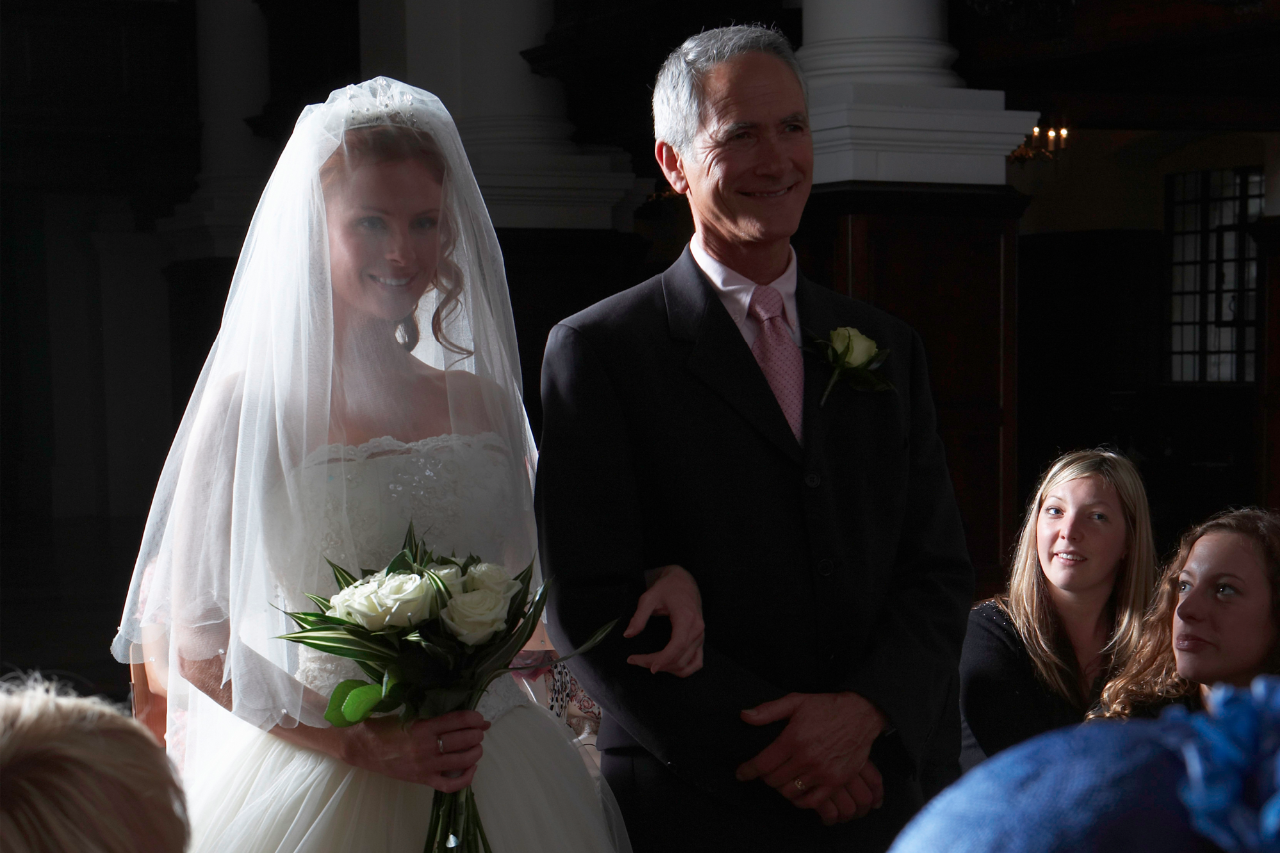
MARRIAGE
The Sacrament of Marriage
The Church rejoices in your decision to get married and offers its continued support to you as you journey together. The Church (the people of God) sees your marriage as a sign of God’s love among us. As ministers of the Sacrament of Marriage to each other you choose to live your married lives within the community of the Church.
The Sacrament enriches your lives in a very special way but it also enriches the community in which you will live. You become witnesses for Marriage to all with whom you make contact. Your parents, family members, friends, colleagues and neighbors celebrate your entry into Marriage and by their attendance at your wedding ceremony offer their continued support to you for your future.
Your decision to get married is a sign of your love and of your desire to be together as husband and wife.
The Sacrament of Marriage is a lasting commitment of a man and a woman to a lifelong partnership, established for the good of each other and the procreation of their children.
The Old Testament states that man was made in the image and likeness of God, and that man and woman were made for each other and through marriage, they become one. The Church teaches that since God created man out of love, and calls on him to love, it is proper that the union of man and woman should be a Sacrament. The love of man and woman mirrors the love of God and their children are part of God’s creation.
Marriage is different to most of the Sacraments which are conferred by a priest, or bishop. The man and woman confer the Sacrament of Marriage upon each other when they express their consent to marry before God and the Church.
As a Sacrament Marriage is part of the Church’s liturgy. Jesus taught that marriage is indissoluble: “Therefore, what God has joined together, no human being must separate” (Matthew 19:6). Through the sacrament of Matrimony, the Church teaches that Jesus gives the strength and grace to live the real meaning of marriage. In the writings of St Paul: “Husbands, love your wives, even as Christ loved the church and handed himself over for her to sanctify her” (Ephesians 5:25–26).

Getting Married The Essential Checklist
Church Requirements
• Meet Priest in Parish of area you reside in to set a date and discuss prerequisites.
• Your Wedding Date - you must give three months’ notice /six months’ notice if
under 18 years.
• Inform Priest of: Name of Parish of the Priest who will assist at your wedding.
Name of Church chosen for ceremony.
• Book church well in advance.
• Book Pre-Marriage Course Six month in advance of Wedding Date.
• Discuss ceremony details with celebrant.
• Choose Readings/Bidding Prayers for ceremony.
Documents Required
A Certificate of Baptism (must be current certificate, written in last six months).
• A Certificate of Confirmation.
• Pre-Nuptial Enquiry Form (available from & fill in with Priest)
• Letter of Freedom
• A Pre-Marriage Course Certificate.
• Dispensation - if prospective spouse is not Roman Catholic or the marriage is in non-Catholic Church.
State Requirements
• Make an appointment to meet with any Civil Registrar to give at least three months’ notice of your intention to marry in advance of your proposed date of marriage.
To notify the Registrar of your intention to marry you may book a marriage notification appointment at the Civil Registration Services or go to www.crsappointments.ie
• In preparation for the meeting with the Registrar meet with your local priest, book your church and know the name of the priest who has agreed to celebrate your marriage (he is known in civil law as the Solemniser).
• Make sure the priest who has agreed to marry you is on the ‘List of Solmnisers.’ If he is not on the list ask your local priest about having him nominated as a temporary Solmniser for your marriage.
You will need the following information and documentation for your meeting with the Registrar:
• Photo identity (preferably a passport or driving licence).
• Names and dates of birth of witnesses
• Name of Church where you wish to marry.
• Date of marriage
• Name of priest who will officiate at your marriage.
• If either of you has been previously married you must provide the Civil Registrar with an original decree or death certificate if widowed.
• Make sure you receive the Marriage Registration Form (MRF) from the Registrar and show it to the Solmniser who has agreed to marry you to ensure all the details are correct.
• Make a verbal declaration of no civil impediment before the Solmniser and your two witnesses not more that two days before your marriage. It usually takes place just as you arrive at the Sanctuary area on the day of your marriage as the Rite of Marriage is about to begin.
• You must return to any Civil Registrar’s office the signed MRF/Form A, not later than one month after your marriage has been celebrated.
Registrar of Marriage
Room 1, Joyce House,
8-11, Lombard Street,
Dublin 2.
Ph: 01 6711863
For more accurate information please contact ACCORD or click here for further information Accord–gettingmarried.ie


